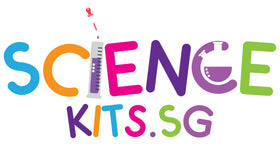
How Science Shapes the Future: Why Every Child Should Learn It
In today’s world, science is more than just a subject—it’s a crucial part of our everyday lives. From the technology we use to the environment we live in, science impacts everything. For children, becoming familiar with science at an early age is essential. It not only helps them understand the world around them but also prepares them for future success. Here’s why science should be a priority in every child’s education.
1. Developing Critical Thinking and Problem-Solving Skills
Science encourages children to ask questions, think critically, and solve problems. These skills are essential, not just in science, but in navigating life’s challenges. Learning to think like a scientist helps children make informed decisions and approach problems with confidence.
2. Sparking Curiosity and a Love for Learning
Children are naturally curious, and science taps into that curiosity. Through exploration and experimentation, kids discover that learning can be fun and exciting. This love for learning often extends beyond science, fostering a lifelong passion for knowledge.
3. Preparing for a Technological Future
As our world becomes more technologically advanced, understanding science is increasingly important. Familiarity with scientific concepts prepares children for future careers in STEM (Science, Technology, Engineering, Mathematics) fields and helps them navigate a tech-driven world.
4. Building Confidence Through Hands-On Learning
Science is about doing as much as it is about knowing. Hands-on activities, like those in science kits, help children gain confidence by allowing them to experiment, learn from mistakes, and see the results of their efforts.
5. Promoting Environmental Awareness
Understanding science, especially ecology and environmental science, teaches children the importance of caring for our planet. This knowledge fosters responsibility and empowers them to make eco-friendly choices, contributing to a sustainable future.
Conclusion
Science is essential for a child’s development, offering critical skills and knowledge that extend far beyond the classroom. By encouraging an early interest in science, we equip children with the tools they need to thrive in a complex, ever-changing world. Whether through school, home experiments, or science kits, every child should have the opportunity to explore and enjoy the wonders of science.
